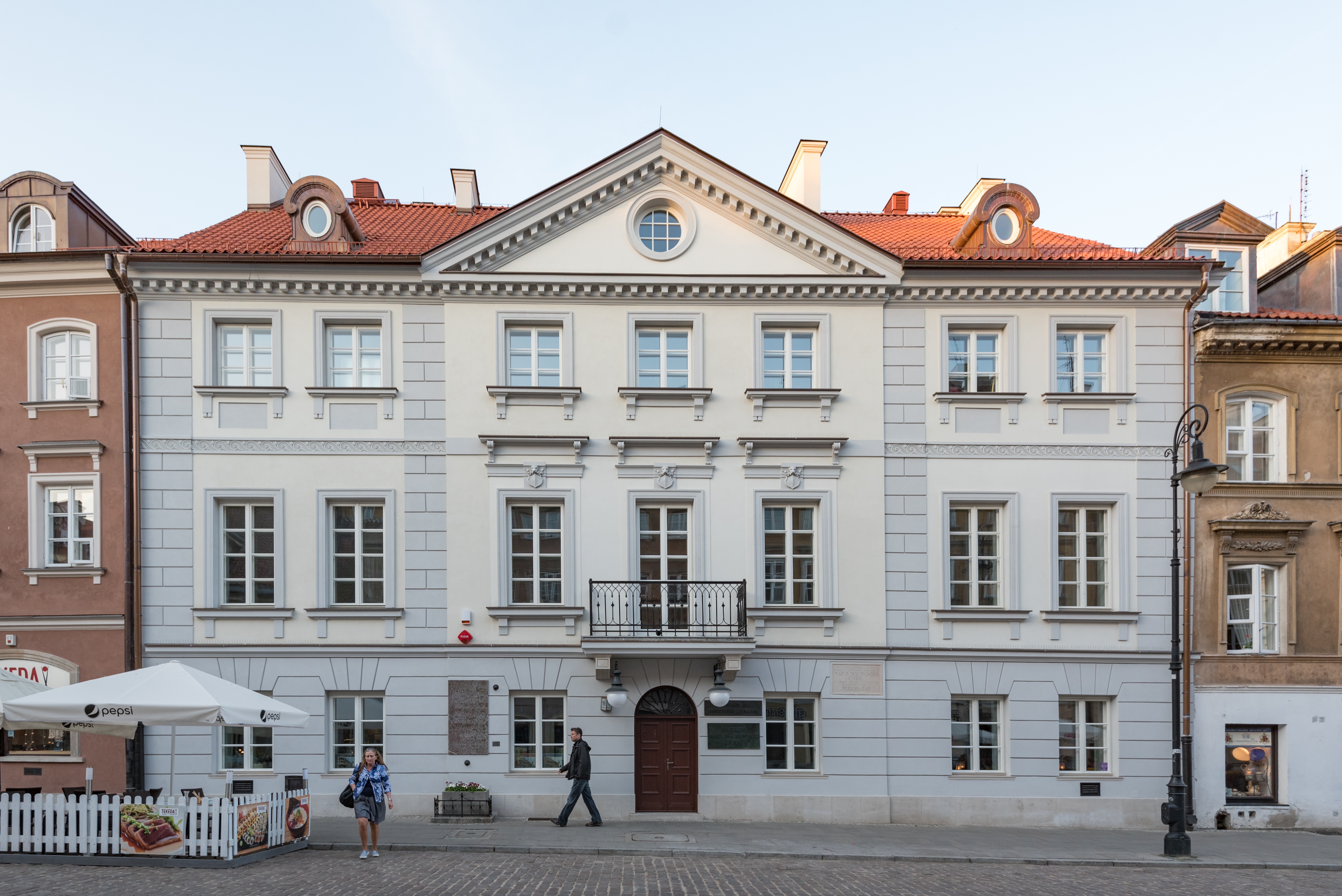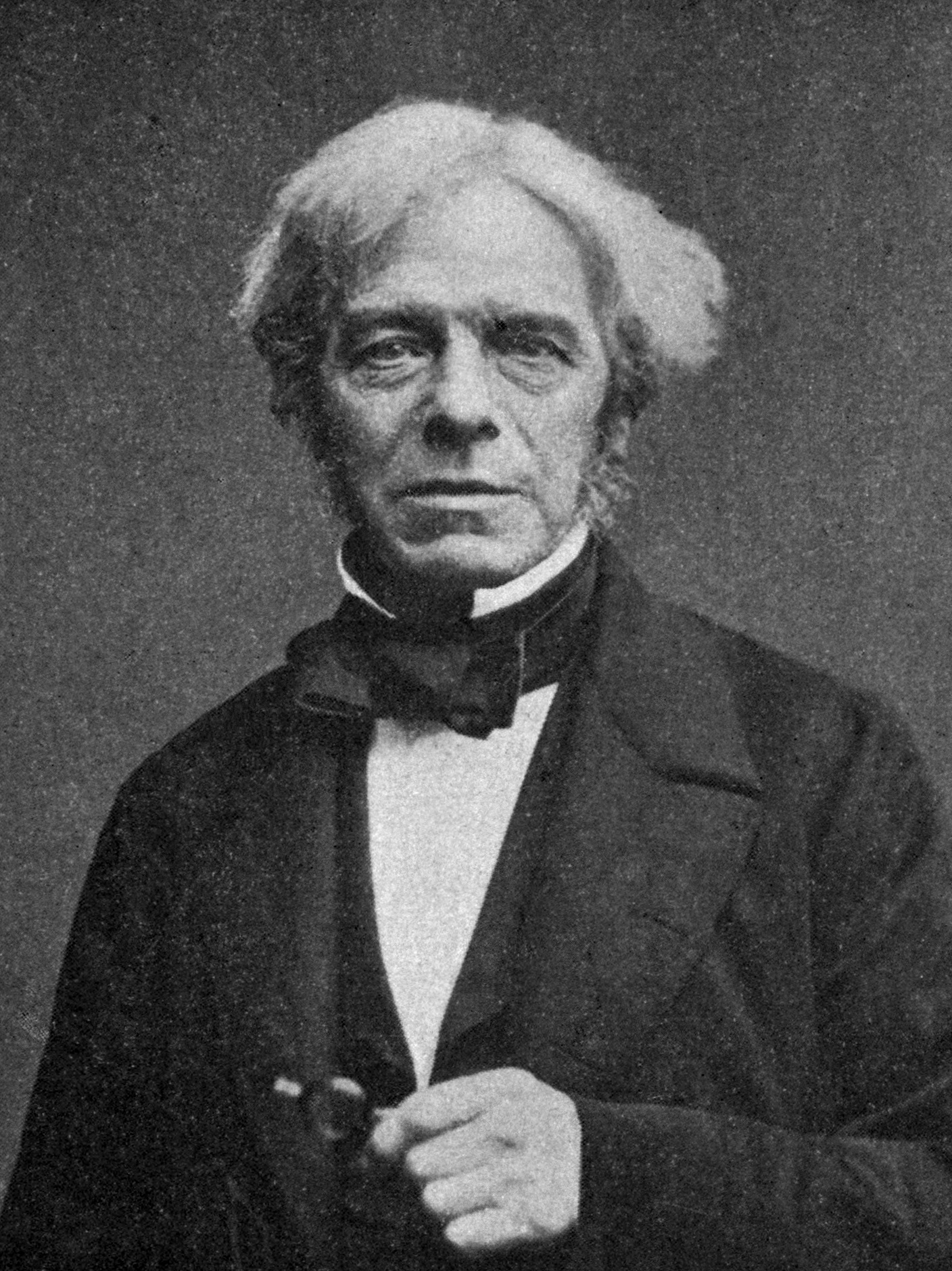|
Scientist
A scientist is a person who conducts scientific research to advance knowledge in an area of the natural sciences. In classical antiquity, there was no real ancient analog of a modern scientist. Instead, philosophers engaged in the philosophical study of nature called natural philosophy, a precursor of natural science. Though Thales (circa 624-545 BC) was arguably the first scientist for describing how cosmic events may be seen as natural, not necessarily caused by gods,Frank N. Magill''The Ancient World: Dictionary of World Biography'', Volume 1 Routledge, 2003 it was not until the 19th century that the term ''scientist'' came into regular use after it was coined by the theologian, philosopher, and historian of science William Whewell in 1833. In modern times, many scientists have advanced degrees in an area of science and pursue careers in various sectors of the economy such as academia, industry, government, and nonprofit environments.'''' History The roles ... [...More Info...] [...Related Items...] OR: [Wikipedia] [Google] [Baidu] |
Science
Science is a systematic endeavor that Scientific method, builds and organizes knowledge in the form of Testability, testable explanations and predictions about the universe. Science may be as old as the human species, and some of the earliest archeological evidence for scientific reasoning is tens of thousands of years old. The earliest written records in the history of science come from Ancient Egypt and Mesopotamia in around 3000 to 1200 Common Era, BCE. Their contributions to mathematics, astronomy, and medicine entered and shaped Greek natural philosophy of classical antiquity, whereby formal attempts were made to provide explanations of events in the Universe, physical world based on natural causes. After the fall of the Western Roman Empire, knowledge of History of science in classical antiquity, Greek conceptions of the world deteriorated in Western Europe during the early centuries (400 to 1000 CE) of the Middle Ages, but was preserved in the Muslim world during the ... [...More Info...] [...Related Items...] OR: [Wikipedia] [Google] [Baidu] |
Scientific Method
The scientific method is an Empirical evidence, empirical method for acquiring knowledge that has characterized the development of science since at least the 17th century (with notable practitioners in previous centuries; see the article history of scientific method for additional detail.) It involves careful observation, applying rigorous skepticism about what is observed, given that Philosophy of science#Observation inseparable from theory, cognitive assumptions can distort how one interprets the Perception#Process and terminology, observation. It involves formulating Hypothesis, hypotheses, via Inductive reasoning, induction, based on such observations; the testability of hypotheses, experimental and the measurement-based statistical testing of Deductive reasoning, deductions drawn from the hypotheses; and refinement (or elimination) of the hypotheses based on the experimental findings. These are ''principles'' of the scientific method, as distinguished from a definitive ser ... [...More Info...] [...Related Items...] OR: [Wikipedia] [Google] [Baidu] |
Marie Curie
Marie Salomea Skłodowska–Curie ( , , ; born Maria Salomea Skłodowska, ; 7 November 1867 – 4 July 1934) was a Polish and naturalized-French physicist and chemist who conducted pioneering research on radioactivity. She was the first woman to win a Nobel Prize, the first person and the only woman to win a Nobel Prize twice, and the only person to win a Nobel Prize in two scientific fields. Her husband, Pierre Curie, was a co-winner of her first Nobel Prize, making them the first-ever married couple to win the Nobel Prize and launching the Curie family legacy of five Nobel Prizes. She was, in 1906, the first woman to become a professor at the University of Paris. She was born in Warsaw, in what was then the Kingdom of Poland, part of the Russian Empire. She studied at Warsaw's clandestine Flying University and began her practical scientific training in Warsaw. In 1891, aged 24, she followed her elder sister Bronisława to study in Paris, where she earned her high ... [...More Info...] [...Related Items...] OR: [Wikipedia] [Google] [Baidu] |
Government Scientist
A government scientist is a scientist employed by a country's government, either in a research-driven job (for example J. Robert Oppenheimer on the Manhattan Project), or for another role that requires scientific training and methods. In some countries other terms, such as Technical officers, is also used for scientists. Australia In Australia, most government scientists are employed by the Commonwealth Scientific and Industrial Research Organisation. A Chief Scientist is appointed to advise the government through the Office of the Chief Scientist. Singapore In Singapore, government scientists are classified according to the Departmental Titles (Alteration) (Amendment) Act 1996, which amended the Departmental Titles (Alteration) Ordinance of 1950. United Kingdom In the United Kingdom, government scientists are part of the Scientific Civil Service. However, that was not always the case. Before the Second World War, government scientists were recruited and employed by the C ... [...More Info...] [...Related Items...] OR: [Wikipedia] [Google] [Baidu] |
Nobel Prize
The Nobel Prizes ( ; sv, Nobelpriset ; no, Nobelprisen ) are five separate prizes that, according to Alfred Nobel's will of 1895, are awarded to "those who, during the preceding year, have conferred the greatest benefit to humankind." Alfred Nobel was a Swedish chemist, engineer, and industrialist most famously known for the invention of dynamite. He died in 1896. In his will, he bequeathed all of his "remaining realisable assets" to be used to establish five prizes which became known as "Nobel Prizes." Nobel Prizes were first awarded in 1901. Nobel Prizes are awarded in the fields of Physics, Chemistry, Physiology or Medicine, Literature, and Peace (Nobel characterized the Peace Prize as "to the person who has done the most or best to advance fellowship among nations, the abolition or reduction of standing armies, and the establishment and promotion of peace congresses"). In 1968, Sveriges Riksbank (Sweden's central bank) funded the establishment of the Prize in Econom ... [...More Info...] [...Related Items...] OR: [Wikipedia] [Google] [Baidu] |
William Whewell
William Whewell ( ; 24 May 17946 March 1866) was an English polymath, scientist, Anglican priest, philosopher, theologian, and historian of science. He was Master of Trinity College, Cambridge. In his time as a student there, he achieved distinction in both poetry and mathematics. The breadth of Whewell's endeavours is his remarkable feature. In a time of increasing specialization, Whewell belonged in an earlier era when natural philosophers investigated widely. He published work in mechanics, physics, geology, astronomy, and economics, while also composing poetry, writing a Bridgewater Treatise, translating the works of Goethe, and writing sermons and theological tracts. In mathematics, Whewell introduced what is now called the Whewell equation, defining the shape of a curve without reference to an arbitrarily chosen coordinate system. He also organized thousands of volunteers internationally to study ocean tides, in what is now considered one of the first cit ... [...More Info...] [...Related Items...] OR: [Wikipedia] [Google] [Baidu] |
19th Century In Science
The 19th century in science saw the birth of science as a profession; the term scientist was coined in 1833 by William Whewell, which soon replaced the older term of (natural) philosopher. Among the most influential ideas of the 19th century were those of Charles Darwin (alongside the independent researches of Alfred Russel Wallace), who in 1859 published the book ''On the Origin of Species'', which introduced the idea of evolution by natural selection. Another important landmark in medicine and biology were the successful efforts to prove the germ theory of disease. Following this, Louis Pasteur made the first vaccine against rabies, and also made many discoveries in the field of chemistry, including the optical isomerism, asymmetry of crystals. In chemistry, Dmitri Mendeleev, following the atomic theory of John Dalton, created the first periodic table of Chemical element, elements. In physics, the experiments, theories and discoveries of Michael Faraday, Andre-Marie Ampere, James ... [...More Info...] [...Related Items...] OR: [Wikipedia] [Google] [Baidu] |
Alessandro Volta
Alessandro Giuseppe Antonio Anastasio Volta (, ; 18 February 1745 – 5 March 1827) was an Italian physicist, chemist and lay Catholic who was a pioneer of electricity and power who is credited as the inventor of the electric battery An electric battery is a source of electric power consisting of one or more electrochemical cells with external connections for powering electrical devices. When a battery is supplying power, its positive terminal is the cathode and its negati ... and the discoverer of methane. He invented the voltaic pile in 1799, and reported the results of his experiments in 1800 in a two-part letter to the president of the Royal Society. With this invention Volta proved that electricity could be generated chemically and debunked the prevalent theory that electricity was generated solely by living beings. Volta's invention sparked a great amount of scientific excitement and led others to conduct similar experiments, which eventually led to the develop ... [...More Info...] [...Related Items...] OR: [Wikipedia] [Google] [Baidu] |
Natural Philosophy
Natural philosophy or philosophy of nature (from Latin ''philosophia naturalis'') is the philosophical study of physics, that is, nature and the physical universe. It was dominant before the development of modern science. From the ancient world (at least since Aristotle) until the 19th century, ''natural philosophy'' was the common term for the study of physics (nature), a broad term that included botany, zoology, anthropology, and chemistry as well as what we now call physics. It was in the 19th century that the concept of science received its modern shape, with different subjects within science emerging, such as astronomy, biology, and physics. Institutions and communities devoted to science were founded. Isaac Newton's book ''Philosophiæ Naturalis Principia Mathematica'' (1687) (English: ''Mathematical Principles of Natural Philosophy'') reflects the use of the term ''natural philosophy'' in the 17th century. Even in the 19th century, the work that helped define much of mo ... [...More Info...] [...Related Items...] OR: [Wikipedia] [Google] [Baidu] |
Natural Science
Natural science is one of the branches of science concerned with the description, understanding and prediction of Nature, natural Phenomenon, phenomena, based on empirical evidence from observation and experimentation. Mechanisms such as peer review and repeatability of findings are used to try to ensure the validity of scientific advances. Natural science can be divided into two main branches: list of life sciences, life science and Outline of physical science, physical science. Life science is alternatively known as biology, and physical science is subdivided into branches: physics, chemistry, earth science, and astronomy. These branches of natural science may be further divided into more specialized branches (also known as fields). As empirical sciences, natural sciences use tools from the formal sciences, such as mathematics and logic, converting information about nature into measurements which can be explained as clear statements of the "laws of science, laws of nature". Mo ... [...More Info...] [...Related Items...] OR: [Wikipedia] [Google] [Baidu] |
Engineer
Engineers, as practitioners of engineering, are professionals who invent, design, analyze, build and test machines, complex systems, structures, gadgets and materials to fulfill functional objectives and requirements while considering the limitations imposed by practicality, regulation, safety and cost. "Science is knowledge based on our observed facts and tested truths arranged in an orderly system that can be validated and communicated to other people. Engineering is the creative application of scientific principles used to plan, build, direct, guide, manage, or work on systems to maintain and improve our daily lives." The word ''engineer'' (Latin ) is derived from the Latin words ("to contrive, devise") and ("cleverness"). The foundational qualifications of an engineer typically include a four-year Bachelor of Engineering, bachelor's degree in an engineering discipline, or in some jurisdictions, a Master of Engineering, master's degree in an engineering discipline plus ... [...More Info...] [...Related Items...] OR: [Wikipedia] [Google] [Baidu] |







